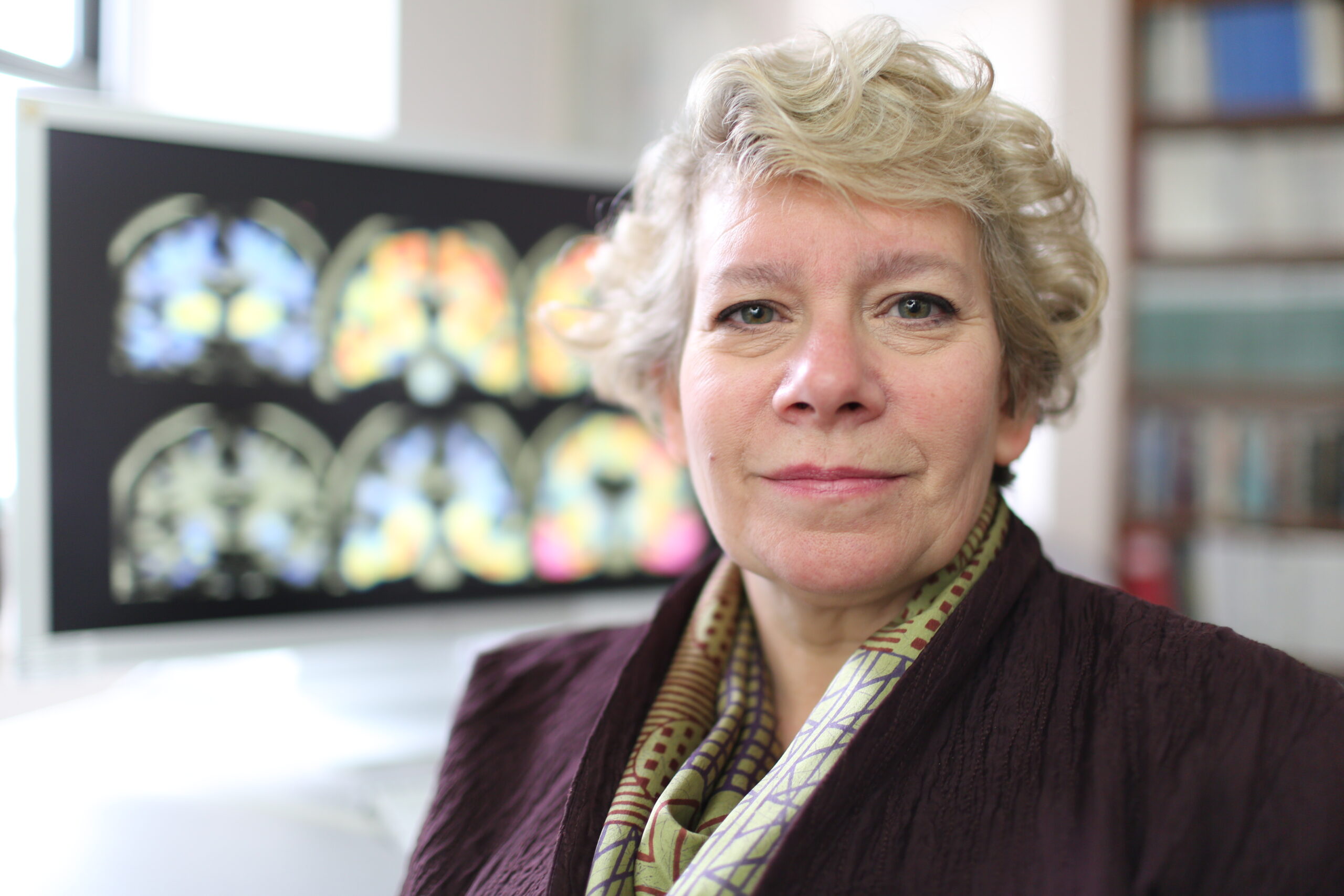Innovations in Research and Care

Reisa A. Sperling, MD, MMSc, director of the Brigham’s Center for Alzheimer Research and Treatment and co-leader of the Davis Alzheimer’s Prevention Program
Brigham experts uncover new clues in the search for better treatments for Alzheimer’s disease
Among the field’s most prominent leaders is Brigham neurologist Reisa A. Sperling, MD, MMSc. Sperling is the director of the Brigham’s Center for Alzheimer Research and Treatment, co-leader of the Davis Alzheimer’s Prevention Program, and a world expert in Alzheimer’s research and care. At the core of Sperling’s work is a focus on detecting and treating Alzheimer’s before people show signs of the devastating disease (AHEADSTUDY.org).
As the leader of two large, international clinical trials, Sperling is harnessing PET imaging and new blood testing technology to determine the extent of amyloid build-up in the brain, a key feature of Alzheimer’s. Through this work, Sperling and her team discovered a surprising trend: Some participants screened for trials—including those in the younger age group consisting of 55- to 64-year-olds—showed abnormalities on blood tests even before amyloid build-up is evident on PET scans. Their discovery provides a possible clue to detecting Alzheimer’s before it manifests clinically, as well as a potential pathway to prevention of the disease.
Looking to the future, Sperling plans to build on this foundation with the launch of the APEX project, which aims to ascertain who is at risk for Alzheimer’s and how to prevent its progression before irreversible brain changes occur. This pioneering endeavor will monitor cognitive, clinical, and biological changes in people who don’t yet show substantial amyloid accumulation, but whose blood test show the start of subtle abnormalities. This work will help researchers develop risk profiles and biomarkers to track Alzheimer’s—a tremendous step closer toward better, and earlier, treatments.
